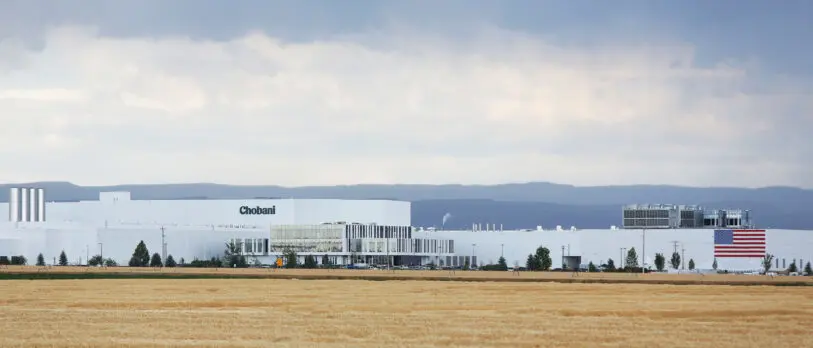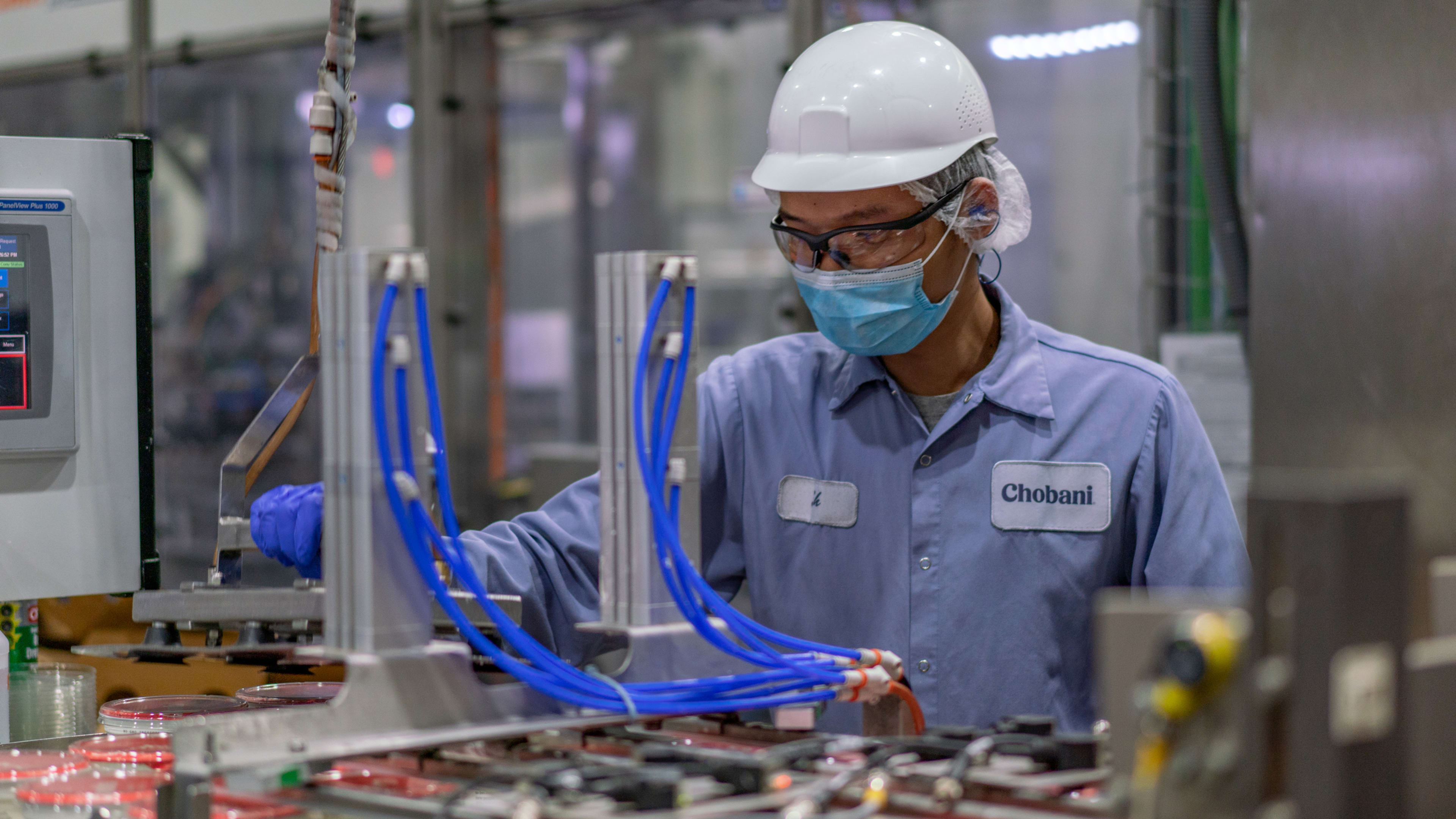When employees at the Chobani plant in Twin Falls, Idaho, come to work on March 25 and April 1, they can get a COVID-19 vaccine for free. The company, which already gave its employees up to six hours paid time off to get vaccinated, has now partnered with the city’s Department of Health and a local pharmacy to distribute shots on-site at two vaccination events.

Food production plants were particularly hard hit by COVID-19, but Chobani says its infection rates were minimal. According to the Magic Valley Times-News, by July, Chobani’s Twin Falls plant had had just 12 cases; the Ida-Beef facility in nearby Burley had had 56 cases by that point.
Even with few cases, making sure your workers are vaccinated is good for business—with less chance that workers get sick, there’s less chance a plant’s production will be disrupted. To Chobani CEO Hamdi Ulukaya, though, holding mass vaccination events is more than that. “It’s good for business, but at the same time, it’s a business’s fundamental responsibility,” he says. These workers are also more than just Chobani employees; they’re members of the local community, and making them safer will help an entire community be safer.
Holding a vaccination event, he hopes, will also make the entire process smoother. People may face some stumbling blocks trying to get vaccinated on their own: “The choices people might have to make between working and getting the vaccination. The knowledge: What is it? How can I get it? Cost? And then . . . do I have any questions about vaccinations?” Ulukaya says. “I think there are a lot of reasons why businesses must get involved.”

The company hopes all its workers will be able to be vaccinated at these events, though some may have already gotten their shots or might prefer to go through their own health providers. There’s no company-wide mandate that workers get the vaccine, though. “As a company we support the effort of vaccination, we believe in science, and we believe that’s the way to go back to life as it was before,” he says. If there are any questions they can answer or support from experts that they can make available, they’ll do so, but they won’t force anyone to get the vaccine. Ulukaya isn’t too worried this will be an issue; he says he sees an “interest and passion to have access to vaccination” from his employees.
At the Idaho plant, all the workers are eligible for the vaccine through the state’s guidelines, which in its Group 2.3 includes food and agriculture workers; a local pharmacy called R&R will administer the shots. However, Chobani has another plant, outside Utica, New York. Workers there don’t yet qualify under state guidelines, but Ulukaya says they’re “keeping an eye on that every day.”
In the meantime, the company has supported vaccination efforts in Utica by donating products and providing volunteers to local vaccination clinics. One of those was within the Center, a Utica nonprofit with services to help refugees and immigrants, specifically for its refugee clients—which included some Chobani employees and their families, the company says. Chobani also gave a $25,000 grant to the Center late last year to support its pandemic-related efforts.
Giving workers COVID-19 vaccines doesn’t mark the end of the pandemic, but to Ulukaya, the two vaccination events in Idaho will be like celebrations, marking a milestone in the experience of workers. He also sees these events as marking a bigger shift in the world of business when it comes to companies taking responsibility for their communities and in society in general. “It’s a small celebration for ourselves,” he says, “and a larger celebration of seeing businesses participate in social issues and challenges.”
Recognize your brand’s excellence by applying to this year’s Brands That Matter Awards before the early-rate deadline, May 3.
